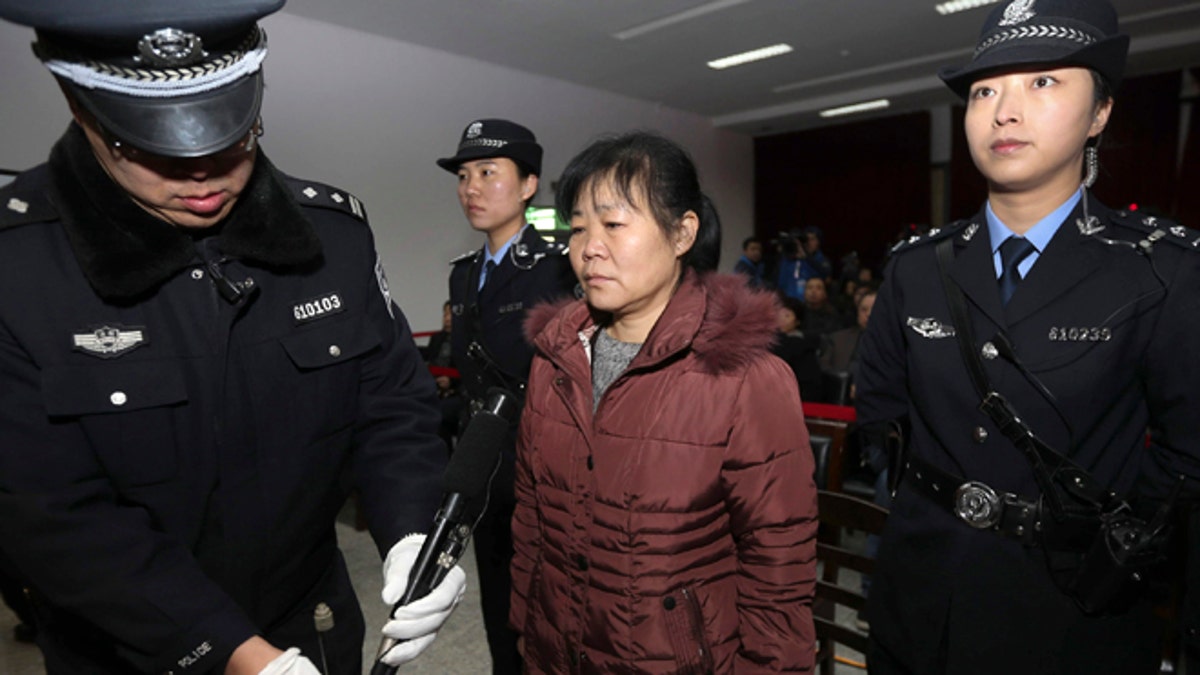
Dec. 30: Zhang Shuxia, an obstetrician involved in baby trafficking, stands trial in Weinan Intermediate People's Court in Weinan, Shaanxi province. (Reuters)
BEIJING – A Chinese doctor has admitted in court that she stole babies from the hospital where she worked and sold them to human traffickers, state media and a court said.
Zhang Shuxia, a locally respected and soon-to-retire obstetrician, stood trial on Monday in northern Shaanxi province's Fuping county, according to online postings from the court.
Zhang told parents their newborns had congenital problems and persuaded them to "sign and give the babies up," the court postings said. Calls to the Weinan Intermediate People's Court and the local Communist Party propaganda department went unanswered.
The case exposed the operations of a baby trafficking ring that operated across several provinces centering on Zhang, who delivered babies at the Fuping County Maternal and Child Hospital.
Child trafficking is a big problem in China, despite severe legal punishments that include the death penalty. Families who buy trafficked children are driven partly by the traditional preference for male heirs, a strict one-child policy and ignorance of the law.
The indictment said that from November 2011 to July 2013, she sold seven babies to middlemen who sold the babies to "couples" in central and eastern China. Six of the babies were rescued, but one that was trafficked for $165 in April later died.
Zhang was found out when a mother suspected her baby had been abducted and reported her to police in July. The official Xinhua News Agency reported that Zhang had taken the baby home with her and sold him to a man in a neighboring province for $3,600 the same night. He in turn resold the baby to a villager in central China for $9,900. Several other suspects have been detained in at least four provinces, Xinhua said.
The case has added to public frustration with China's medical profession over rampant bribery and other abuses.
The Beijing Times newspaper called for a "fair punishment" for Zhang to deter other doctors. "It will inject the authoritativeness of law into professional ethics of doctors and will warn doctors not to take the wrong step that brings them lifelong regret," the paper said.






































